The PATHS® Programme for Schools (UK Version) consists of a variety of lessons and is designed for use with primary school children.
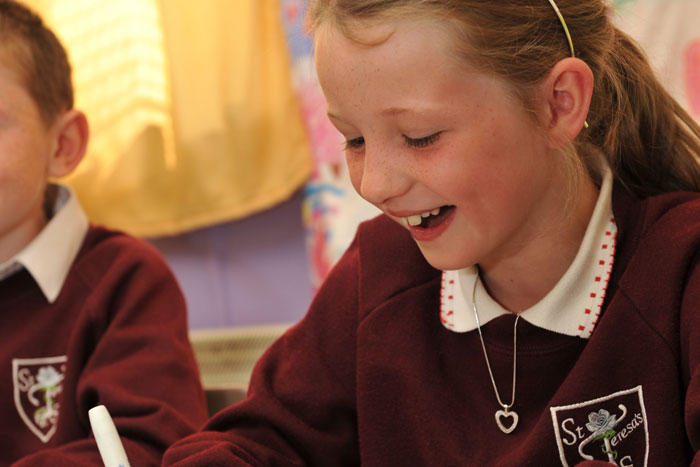
The PATHS® Programme for Schools (UK Version) is a programme for educators and counsellors designed to facilitate the development of self-control, emotional awareness and interpersonal problem-solving skills. The programme consists of a variety of lessons, and additional materials and charts.
The PATHS® programme is designed for use with primary school children. The purposes of the PATHS® programme are to enhance the social competence and social understanding of children, as well as to facilitate educational processes in the classroom. The PATHS® Programme for Schools (UK Version) has been adapted for a UK audience by Barnardo’s NI.
Back To Top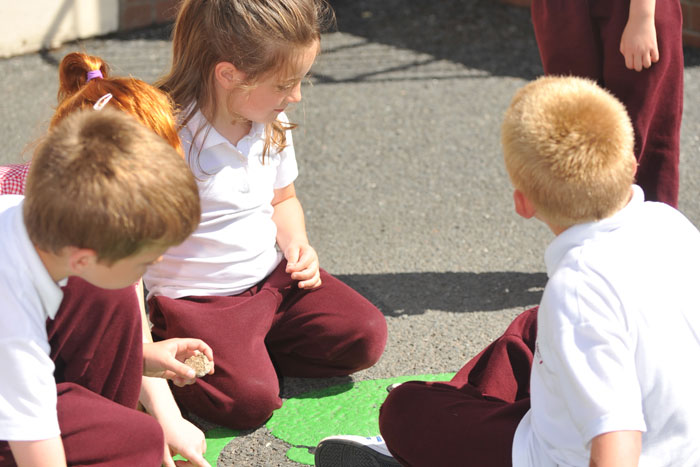
An effective social-cognitive programme is important because children often show difficulties in social problem-solving, self-control, affective understanding and self-esteem. The PATHS® Programme for Schools (UK Version) provides teachers and educators with a systematic developmental procedure for enhancing social competence and understanding in children. It addresses the following goals:
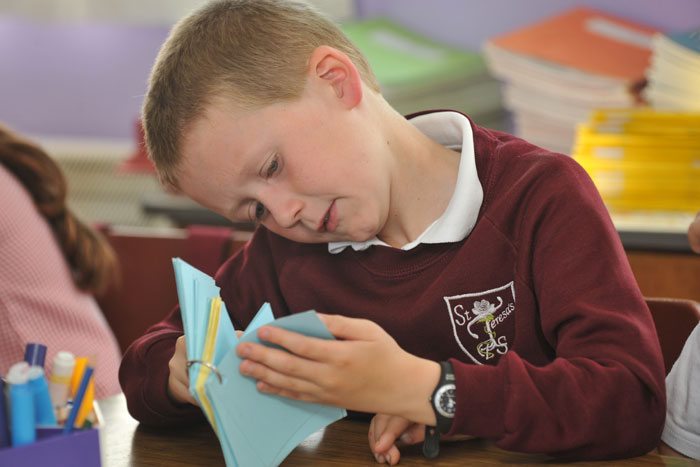
The PATHS® Programme for Schools (UK Version) Curriculum includes four conceptual units. The units are:
These units are integrated within the lessons and are covered at the appropriate developmental level during each year.
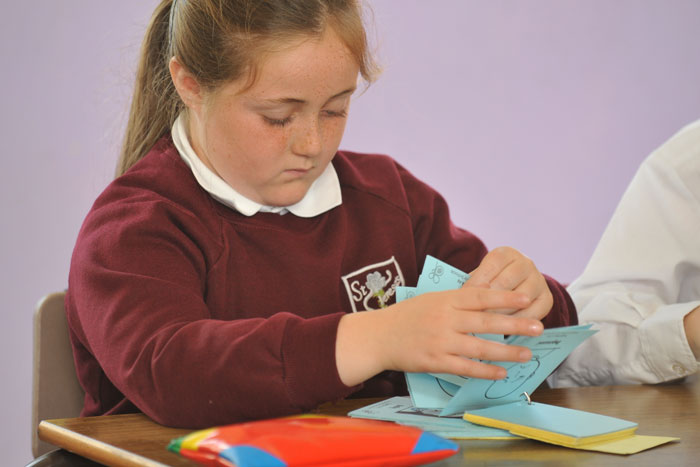
The lessons on emotional understanding cover approximately 25 different affective states and are taught in a developmental hierarchy beginning with basic emotions (happy, sad, angry, etc.) and later introducing more complex emotional states. As the ability to label emotional states is a central focus, major emphasis is placed on encouraging such labelling as a precursor for effective self-control and optimal problem resolution. The children are also taught cues for the self-recognition of their own feelings and the recognition of emotions in others, affective self-monitoring techniques, training in attributions that link causes and emotions, perspective-taking skills in how and why to consider another’s point of view, and information regarding how the behaviour of others can affect oneself. These lessons include group discussions, role-playing, art activities, biographies, stories and educational games.

The second unit focuses on self-control, a prerequisite for effective problem-solving. In this section, emotions such as anger and frustration are discussed, differentiations are made between feelings (all feelings are OK to have) and behaviours (some are OK and some are NOT OK), and modelling and role-play are utilised to teach children new ways to recognise and control anger. Some methods for helping children to calm down and learn better self-control, the Turtle Technique, Three Steps for Calming Down and the Control Signals Poster (CSP) are also introduced in this sub-unit. The CSP is modelled on the notion of a traffic signal and is a revised version of the Stop Light used in the Yale-New Haven Middle School Social Problem Solving Program (Weissberg, Caplan, & Bennetto, 1988). The red light of the CSP focuses on self-control.
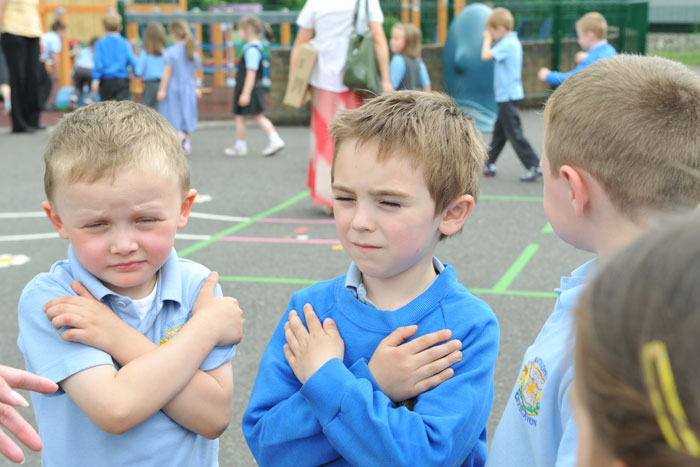
The third focus of the curriculum teaches interpersonal problem-solving. The skills in emotional awareness and self-control are prerequisites for learning competent interpersonal problem-solving, so lessons on this topic do not begin until the groundwork has been covered by previous instruction. Beginning in an informal, active manner (using the Control Signals Poster), children are taught the steps of social problem-solving. Beginning in Primary Five (Year 4), children receive formal lessons on each of the following steps:- Stop - What is Happening?
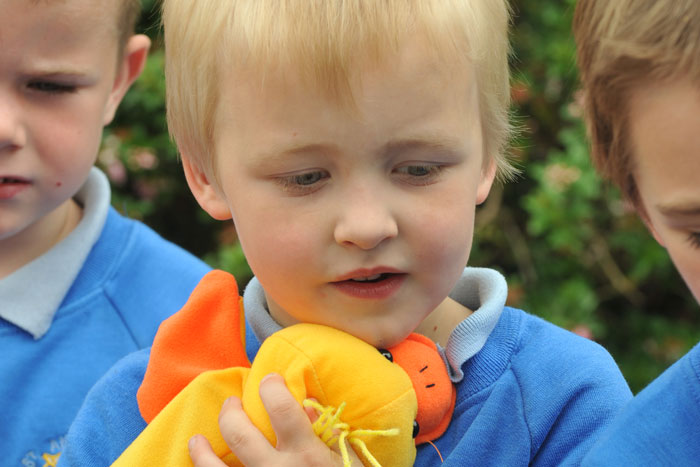
Issues regarding friendship and peer relations are introduced throughout the PATHS® curriculum. This occurs both in the context of feelings (i.e., angry, shy, lonely, etc.) as well as through role-playing and thinking about how to solve problems that arise with friends. The issue of self-esteem is covered in a variety of ways including the regular activity of giving compliments (Pupil of the Day).
Back To Top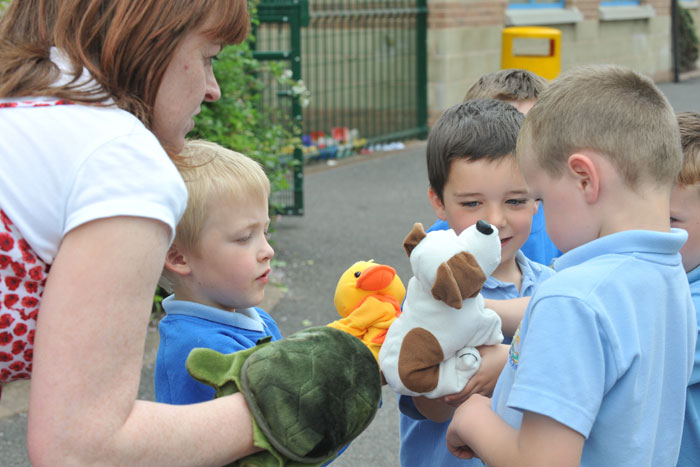
The PATHS® Programme for Schools (UK Version) is intended to be used across all year groups in Primary Schools. Beginning in Primary 1 (Reception) and extending to Primary 7 (Year 6), The programme is developmentally appropriate and universal for all children.
Back To Top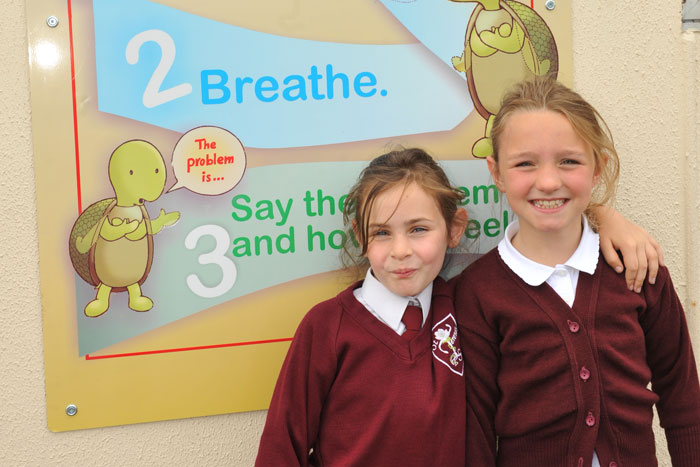
There are four major factors that are addressed by focusing on self-control, emotional understanding, problem-solving skills and creative self-expression. First, we teach children to “Stop and Think”, a response that facilitates the development and use of verbal thought. Second, we provide children with enriched linguistic experiences which will help mediate understanding of self and others. Third, we teach the children to integrate emotional understanding with cognitive and linguistic skills to analyse and solve problems. Fourth, and very critically, we encourage the development of verbally mediated self-control over behaviours.
The PATHS® Programme for Schools (UK Version) provides teachers with a systematic and developmental procedure for reducing adverse factors which can negatively affect a child’s adaptive behaviour and ability to profit from his/her educational experiences. The programme is designed to help children:-
These skills, in turn, increase the child’s access to positive social interactions and provide opportunities for a greater variety of learning experiences. Increasing self-control and reflective thinking skills also contribute to the amelioration of significant underachievement and promote skills which will be beneficial in preventing the genesis of other types of problem behaviours in the future (e.g. alcohol and drug abuse).
In addition, as programme activities become a regular part of the school day, less instructional time is apt to be used for correcting child behaviour problems; in this way, classroom climate can be improved and teacher frustration and “burnout” are reduced.
Back To TopFor more information on how your school can benefit from the PATHS® programme, training and coaching or to order a pack from us, get in touch.
Learn More